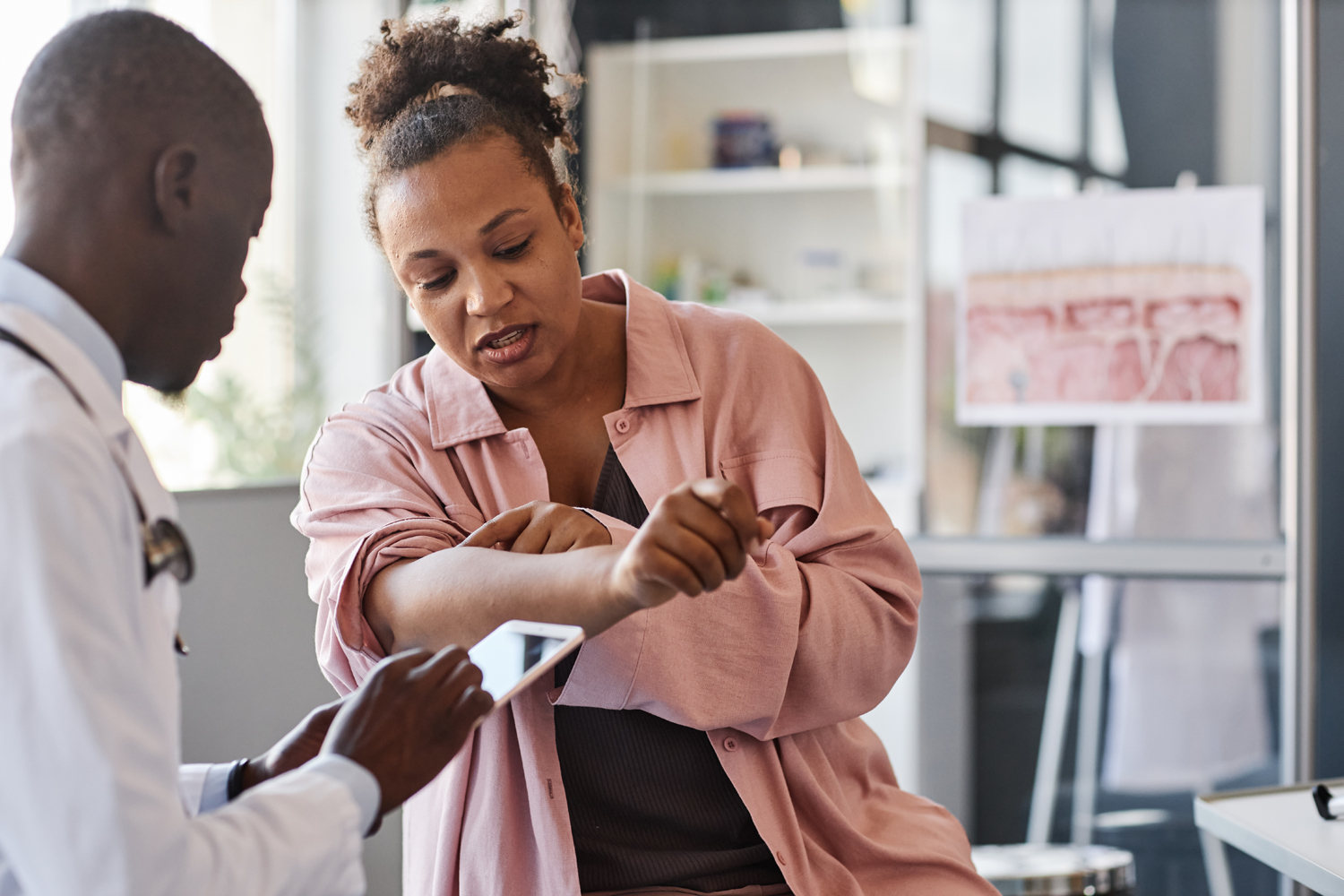Can my cancer treatment cause a rash?

Anisha Patel, dermatologist at the University of Texas MD Anderson Cancer Center in Houston Photo courtesy of the University of Texas MD Anderson Cancer Center
Skin rashes are a potential side effect of most cancer therapies, although the frequency, intensity and type will vary depending on the specific treatment you receive. Radiation and chemotherapy can cause skin redness, itchiness and dryness. Immunotherapies unleash part of the immune system to treat the cancer, but that can also cause skin conditions, such as eczema, psoriasis and lichen planus, an inflammatory condition that affects the skin, hair, nails, mouth and genitals. Targeted therapies, such as EGFR or MEK inhibitors, also may come with skin toxicities, including a condition that looks similar to cystic acne.
While a rash may be uncomfortable, it also can be a good sign in some cases. In a study of people with melanoma receiving immunotherapy at MD Anderson, we found patients who developed rashes had a longer treatment response than those who did not get a rash. More study is needed in other cancers, but the general thought is: If your skin shows signs of an immune response, your tumor must be responding as well.
While there’s no way to prevent skin issues completely, you can take proactive steps to keep your skin healthy during treatment. To ensure your skin stays hydrated, apply mild creams or ointments right after a shower. Avoid ingredients in skin care products that can irritate the skin, including fragrances, preservatives and alcohol. Stay away from exfoliants that may be abrasive.
Learn about a topical gel that can decrease acneiform rash and improve quality of life in people being treated for colorectal cancer.
If you do develop skin problems, talk to your care team and do not try to manage them on your own. Over-the-counter creams or astringents can dry out the skin and make inflammation worse. It can be helpful to work with a dermatologist to address these issues, but many oncologists can recognize and manage common treatment-related skin conditions.
Some skin effects may go away quickly once treatment ends. Others, including those related to immune activation following immunotherapy, may last longer. Some people may still have skin conditions, such as psoriasis, years after treatment. But your care team can help address these issues to support your recovery.
SKIN SIDE EFFECTS // The National Cancer Institute describes many skin side effects that can happen during cancer treatment. // The American Cancer Society explains the most common rashes caused by cancer treatment.
The expert’s response was edited for clarity and based on an interview with Kendall K. Morgan.
Cancer Today magazine is free to cancer patients, survivors and caregivers who live in the U.S. Subscribe here to receive four issues per year.





